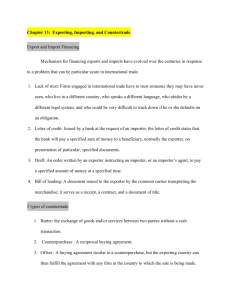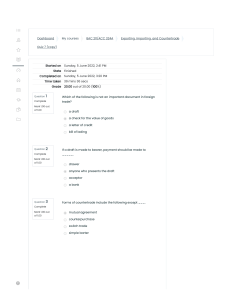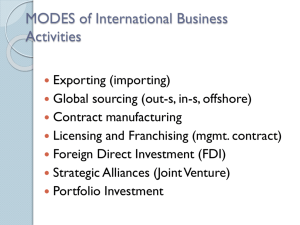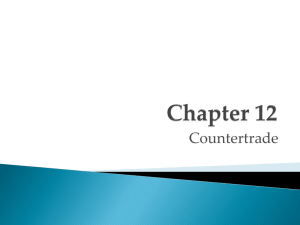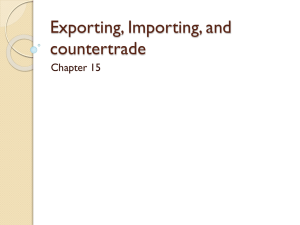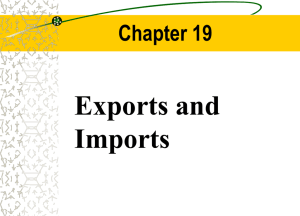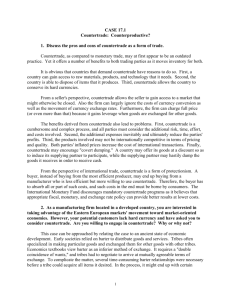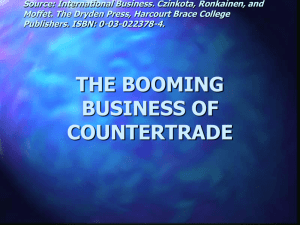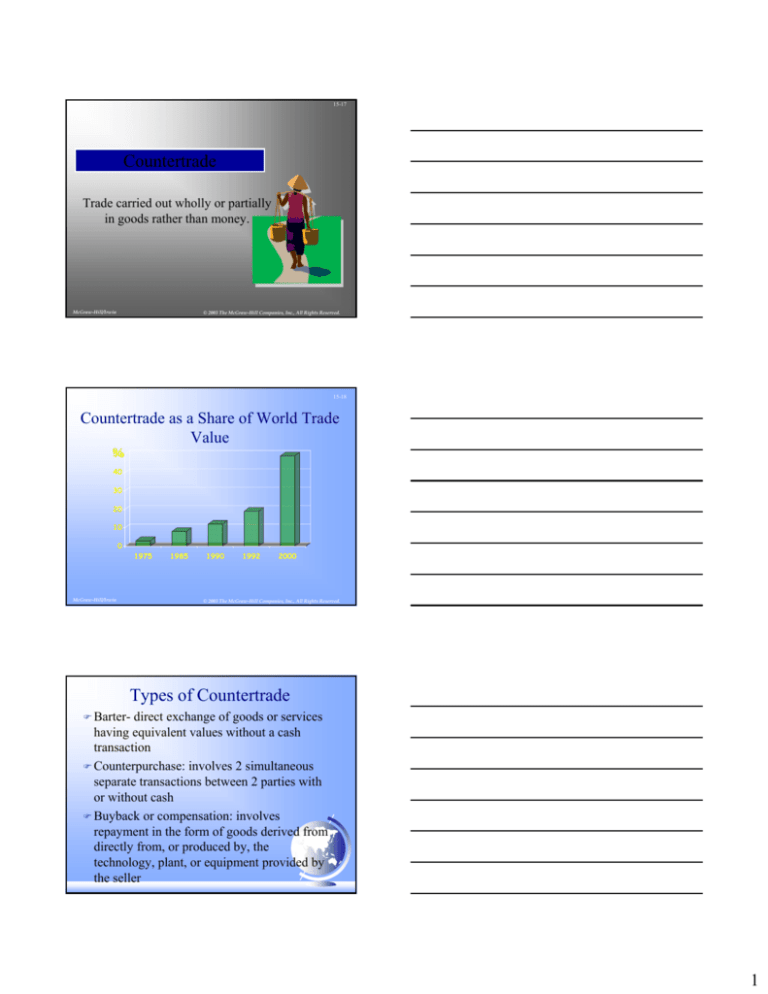
15-17
Countertrade
Trade carried out wholly or partially
in goods rather than money.
McGraw-Hill/Irwin
© 2003 The McGraw-Hill Companies, Inc., All Rights Reserved.
15-18
Countertrade as a Share of World Trade
Value
50
%
40
30
20
10
0
1975
McGraw-Hill/Irwin
1985
1990
1992
2000
© 2003 The McGraw-Hill Companies, Inc., All Rights Reserved.
Types of Countertrade
) Barter-
direct exchange of goods or services
having equivalent values without a cash
transaction
) Counterpurchase: involves 2 simultaneous
separate transactions between 2 parties with
or without cash
) Buyback or compensation: involves
repayment in the form of goods derived from
directly from, or produced by, the
technology, plant, or equipment provided by
the seller
1
Types of Countertrade
) Offsets:
involves an arrangement whereby
the seller is required to assist in or to
arrange for the marketing of products
produced by the buying country or to allow
some portion of the exported product to be
assembled or manufactured by producers
located in the buying country.
) Switch-trading: refers to a switch in the
country of destination goods
15-19
Countertrade Practice
100
Percent of
companies
engaged in each
countertrade
practice
80
73
60
60
19
20
McGraw-Hill/Irwin
Switch Trading
Barter
40
Figure 15-5
Offset
Buyback
22
Counterpurchase
3
0
O ffse t
S w itc h T ra d in g
B a rte r
B u yb a c k
C o u n te rp u rc h a se
© 2003 The McGraw-Hill Companies, Inc., All Rights Reserved.
Why countertrade?
) shortage
of hard currency
) lack of credit
) BOP problems
) low commodity prices - low export income
) surplus capacity
) arms trade
) lack of a well developed private sector
) lack of international trading experience
) LDCs - low share of manufactured goods I
intl trade
2
Benefits of Countertrade
) Allows
entry into difficult markets
) Increases company sales
) Overcomes currency controls & exchange
problems
) Increases sales volume
) Overcomes credit difficulties
) Allows fuller use of capacity
) Allows disposal of declining products
) Provides sources of attractive inputs
) Gain competitive edge over competition
Disadvantages of Countertrade
) No
“in house” use of goods offered by
customers
) Time consuming and complex negotiations
) Uncertainty
) Increase costs
) Difficult to resell goods by offsets
) Brokerage costs
) Getting businesses in which firm may have
no knowledge
) Risky if commodities are involved
15-22
Pros and Cons of Countertrade
) Gives
firms a way to finance an export deal
when other means are unavailable.
) Foreign governments may require it.
– Helps countries that don’t have sufficient foreign
currency reserves.
) However:
– May involve defective goods.
– Must invest in in-house trading department expensive and time consuming.
) Most
attractive to large, diverse multinational
enterprises.
McGraw-Hill/Irwin
© 2003 The McGraw-Hill Companies, Inc., All Rights Reserved.
3

